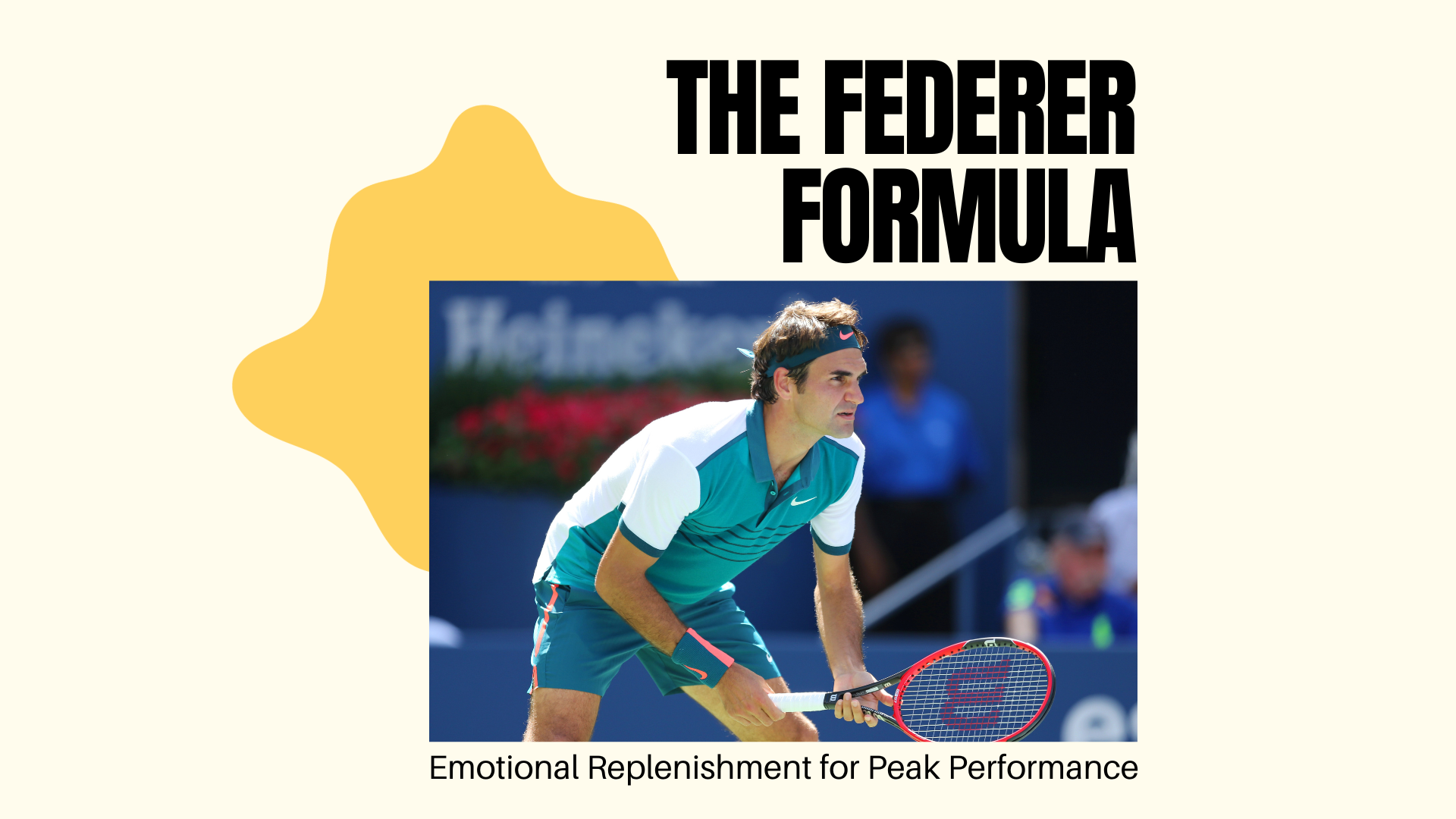On the day of a Grand Slam night match, most tennis pros try to control every aspect of their preparation—from sleep in their hotel room to hooking themselves up to performance-enhancing machines, analysing the match ahead, and eating the perfect amount of calories.
But not Roger Federer, who was often seen strolling through one of Melbourne’s beautiful parks or taking his children to a museum in Paris. This stark contrast between Federer’s relaxed pre-game routine and his rivals’ tense preparations illustrates a useful psychological concept.
Federer mastered the art of compartmentalisation. To take his mind off the performance he expected himself to deliver that evening by filling up on activities that gave him joy. In doing so, he was better able to execute when the time came on court, particularly when the pressure was on. He wasn’t wound up tight from a day of control and swirling thoughts; instead, his relaxed state gave him the best possible chance of finding ease and flow during the match.
It’s important to note that Federer’s strategy of emotional replenishment requires that you put in the necessary preparation. Federer was known for his rigorous and strategic training regimen, and of course, the raw talent helps. Even as a teenager, Federer placed emphasis on his mental game, working with a performance psychologist at a time when it was often seen as a sign of weakness.
So, when was the last time you allowed yourself to truly unwind before a big moment? Next time you have to perform—be it an important pitch, a clutch sales meeting, or a difficult conversation with a colleague—ask yourself, “Have I done the required preparation?” If the answer is yes, rather than spending more hours rehearsing or overthinking, consider taking a leaf out of Federer’s playbook. Go do something that brings you joy. This shift in approach might just transform how things unfold when it’s showtime.
In a world that stresses the value of constant control and preparation, replenishing your emotional cup is not just a strategy for legends like Federer—it’s something we can all do to support our wellbeing and performance.
Part of Short Tales of Psychology – a series about interesting humans and the psychological lessons we can apply to enhance our mental wellbeing and optimise performance.







